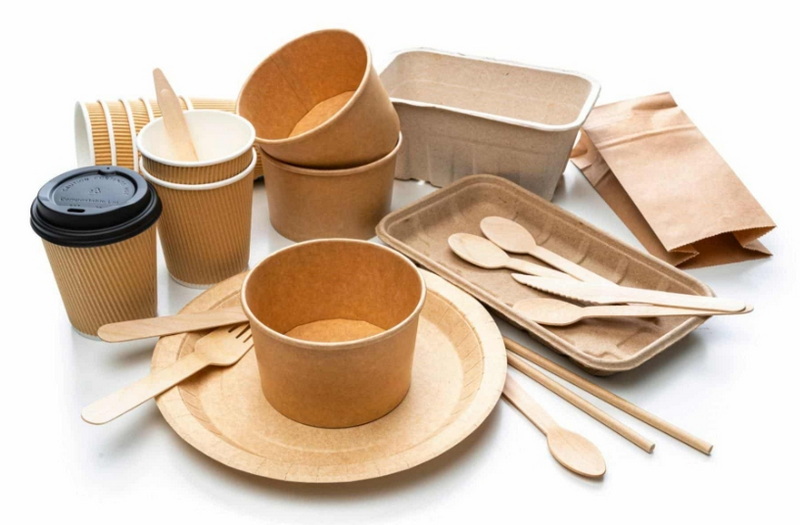
Content Menu
● Introduction
● The Importance of Quality in Disposable Tableware
● Raw Material Selection and Quality Control
>> Sourcing Food-Grade Materials
>> Supplier Audits and Traceability
>> Material Testing
● Production Process Management
>> Standard Operating Procedures (SOPs)
>> In-Process Quality Checks
>> Automation and Advanced Technology
● Quality Assurance and Testing
>> Multi-Stage Inspection
>> Third-Party Testing
● Packaging, Storage, and Logistics
>> Hygienic Packaging
>> Controlled Storage
>> Efficient Logistics
● Regulatory Compliance and Certifications
>> Key Certifications
>> Documentation and Transparency
● Continuous Improvement and Innovation
>> Feedback Loops
>> Research and Development
>> Employee Training
● Challenges Facing Disposable Tableware Factories
● Conclusion
● FAQ
>> 1. What certifications should disposable tableware factories have?
>> 2. How do factories test the safety of disposable tableware?
>> 3. What steps are involved in quality control during production?
>> 4. How do disposable tableware factories ensure environmental responsibility?
>> 5. What should buyers look for when selecting a disposable tableware factory?
● Citations:
Disposable tableware factories play a crucial role in the modern foodservice and hospitality industries, providing convenient, hygienic, and often eco-friendly solutions for serving food and beverages. However, the widespread use of disposable tableware also raises important questions about product quality, safety, and sustainability. This article explores in depth how disposable tableware factories ensure product quality, examining every stage from raw material sourcing to final shipment, and highlighting the certifications, inspections, and continuous improvement processes that underpin the industry.

Introduction
Disposable tableware factories are at the forefront of the battle to balance convenience, hygiene, and environmental responsibility. As the demand for single-use plates, cups, utensils, and food containers grows, so does the scrutiny on how these products are made and whether they meet the necessary standards for safety and performance. Ensuring product quality is not only about meeting customer expectations but also about complying with stringent health, safety, and environmental regulations worldwide.
The Importance of Quality in Disposable Tableware
Quality in disposable tableware is non-negotiable. Poor-quality products can result in health hazards, environmental harm, and reputational damage for manufacturers and their clients. High-quality disposable tableware must be:
- Safe for food contact
- Free from contaminants
- Durable enough for intended use
- Consistent in size, shape, and appearance
- Environmentally responsible, especially for biodegradable or compostable options
Disposable tableware factories have developed comprehensive quality management systems to address these requirements at every stage of production[1][2][4][6].
Raw Material Selection and Quality Control
Sourcing Food-Grade Materials
The foundation of product quality in disposable tableware factories begins with the selection of raw materials. Factories must source plastics, paper, or plant-based materials that comply with food safety standards such as FDA approval in the United States or EU Regulation (EC) No 1935/2004 in Europe[1][2][5]. For biodegradable products, materials must also meet compostability standards like BPI or DIN CERTCO certifications[5][6].
Supplier Audits and Traceability
To ensure consistent quality, factories often conduct audits of their raw material suppliers, verifying their certifications and ability to provide traceable, high-grade materials. This includes:
- Inspecting supplier facilities
- Reviewing documentation for food safety compliance
- Testing incoming raw materials for contaminants or defects[2][6]
Material Testing
Before production, disposable tableware factories perform laboratory tests on raw materials to check for:
- Chemical composition
- Physical properties (strength, flexibility, thickness)
- Absence of harmful substances (e.g., heavy metals, BPA)[1][5][6]
Production Process Management
Standard Operating Procedures (SOPs)
Factories implement detailed SOPs for every step of the manufacturing process, ensuring that each batch of disposable tableware is produced under controlled, repeatable conditions. These procedures cover:
- Machine calibration and maintenance
- Worker hygiene and training
- Environmental controls (temperature, humidity, cleanliness)[1][4][6]
In-Process Quality Checks
During production, quality control inspectors monitor key parameters such as:
- Product dimensions and weight
- Surface finish and color consistency
- Structural integrity (e.g., resistance to cracking or leaking)
- Proper labeling and branding[3][4]
Any deviations from standards are corrected immediately to prevent defective products from progressing further down the line[3][4].
Automation and Advanced Technology
Modern disposable tableware factories increasingly use automated systems and advanced machinery to reduce human error and improve precision. Technologies such as computer vision, robotics, and real-time monitoring help maintain consistent product quality at scale[6].

Quality Assurance and Testing
Multi-Stage Inspection
Quality assurance in disposable tableware factories is a multi-stage process:
1. Pre-Production Inspection
Verifies that all raw materials and components meet specifications before manufacturing begins[4][6].
2. In-Process Inspection
Ongoing checks during production to catch issues early[3][4].
3. Final Product Inspection
Comprehensive testing of finished products, including:
- Visual inspection for defects
- Functional tests (e.g., leak resistance, heat tolerance)
- Measurement of dimensions and weight[3][4][6]
4. Pre-Shipment Inspection
Sampling finished goods according to international standards (such as AQL) to ensure only compliant products are shipped[4].
Third-Party Testing
To provide additional assurance, many factories send samples to independent laboratories for third-party testing. These tests may cover:
- Food safety (migration tests, absence of toxins)
- Biodegradability and compostability (for eco-friendly products)
- Compliance with international standards (FDA, EU, ISO, ASTM)[5][6]
Packaging, Storage, and Logistics
Hygienic Packaging
Disposable tableware factories use food-grade packaging materials to protect products from contamination during storage and transit. Packaging must be:
- Sealed to prevent dust and foreign matter
- Clearly labeled with product information and certifications[1][4]
Controlled Storage
Warehousing practices are critical for maintaining product quality. Factories store finished goods in clean, climate-controlled environments to prevent damage from moisture, heat, or pests[2][6].
Efficient Logistics
Logistics teams coordinate the safe and timely delivery of products, minimizing handling and exposure to adverse conditions. This reduces the risk of damage or contamination before products reach customers[2][6].
Regulatory Compliance and Certifications
Key Certifications
Disposable tableware factories must obtain and maintain a range of certifications to demonstrate their commitment to quality and safety:
| Certification | Purpose | Region |
| ISO 9001 | Quality management system | Global |
| ISO 22000 | Food safety management system | Global |
| FDA Approval | Food contact safety | United States |
| EU Reg. (EC) 1935/2004 | Food contact materials | European Union |
| BPI Certification | Compostability (biodegradable products) | North America |
| DIN CERTCO | Compostability (biodegradable products) | Europe |
| ASTM D6400/D6868 | Compostability (biodegradable products) | United States |
Factories must keep these certifications up to date, undergo regular audits, and adapt to evolving regulations[2][5][6].
Documentation and Transparency
Certified disposable tableware factories provide detailed documentation for each batch, including:
- Certificates of analysis
- Test reports
- Traceability records
- Compliance declarations[5][6]
This transparency builds trust with customers and regulatory authorities.
Continuous Improvement and Innovation
Feedback Loops
Leading disposable tableware factories actively seek feedback from customers, distributors, and end-users. This information is used to:
- Identify recurring issues or defects
- Refine production processes
- Develop new products or features[3][6]
Research and Development
Ongoing investment in R&D allows factories to:
- Improve material performance (e.g., stronger, lighter, more sustainable)
- Reduce environmental impact (e.g., better compostability, recyclability)
- Enhance manufacturing efficiency and reduce waste[3][6]
Employee Training
Continuous training programs ensure that workers are up to date on best practices, safety protocols, and quality standards, further reinforcing a culture of quality[1][6].
Challenges Facing Disposable Tableware Factories
Despite robust quality management systems, disposable tableware factories face significant challenges:
- Raw Material Variability: Fluctuations in raw material quality can affect product consistency, especially for natural or recycled materials.
- Regulatory Complexity: Navigating different international regulations and certifications requires ongoing vigilance and adaptability.
- Environmental Concerns: Balancing performance, cost, and sustainability is an ongoing challenge, especially as consumer and regulatory expectations evolve.
- Counterfeit Products: The risk of counterfeit or substandard products entering the supply chain can undermine trust and safety[4][5].
Factories must remain proactive and agile to address these challenges while maintaining high standards.
Conclusion
Ensuring product quality in disposable tableware factories is a complex, multi-faceted endeavor that spans raw material selection, production management, quality assurance, regulatory compliance, and continuous improvement. By implementing rigorous quality control systems, adhering to international standards, and embracing innovation, leading factories deliver products that are safe, reliable, and increasingly sustainable.
As consumer awareness and regulatory scrutiny continue to rise, disposable tableware factories must remain committed to transparency, accountability, and excellence at every step. Only through such dedication can they meet the demands of a global market while protecting public health and the environment.

FAQ
1. What certifications should disposable tableware factories have?
Disposable tableware factories should have certifications such as ISO 9001 (quality management), ISO 22000 (food safety management), FDA approval (for US markets), EU Regulation (EC) No 1935/2004 (for EU markets), and compostability certifications like BPI or DIN CERTCO for biodegradable products[2][5][6].
2. How do factories test the safety of disposable tableware?
Factories conduct laboratory tests on raw materials and finished products to check for harmful substances, perform migration tests to ensure food safety, and verify physical properties like strength and heat resistance. Many also use third-party labs for independent verification[1][5][6].
3. What steps are involved in quality control during production?
Quality control during production includes pre-production inspection (verifying materials and specifications), in-process inspection (monitoring production parameters), final product inspection (testing finished goods), and pre-shipment inspection (sampling according to international standards)[4][6].
4. How do disposable tableware factories ensure environmental responsibility?
Factories ensure environmental responsibility by sourcing certified biodegradable or compostable materials, minimizing waste, using eco-friendly packaging, and obtaining certifications like BPI, DIN CERTCO, or ASTM for compostability. Continuous R&D also focuses on improving sustainability[3][5][6].
5. What should buyers look for when selecting a disposable tableware factory?
Buyers should look for factories with relevant certifications, transparent sourcing and manufacturing processes, robust quality control systems, and a track record of compliance with international standards. Requesting documentation and conducting factory audits are recommended[2][5].
Citations:
[1] https://www.cnnbcy.com/news/industry-news/how-to-ensure-the-hygiene-and-safety-of-plastic-disposable-dinnerware.html
[2] https://huntersourcing.com/disposable-tableware-supplier/
[3] https://www.linkedin.com/pulse/quality-control-areca-palm-leaf-disposable-manufacturing-ejmsc
[4] https://disposablesinc.com/our-services/quality-controls-for-products
[5] https://wonbonwood.com/best-practices-importing-tableware/
[6] https://easypacktw.com/blog/we-are-strict-about-quality-and-conduct-the-necessary-tests-throughout-the-manufacturing-process/
[7] https://www.anchenggy.com/blog/must-ask-questions-for-your-disposable-tableware-supplier.html
[8] https://www.panabam.com/certifications-and-standards-for-disposable-tableware-a-comprehensive-guide/
[9] https://www.qcadvisor.com/inspection-checklist/disposable-tableware-plates-cups/
[10] https://www.alibaba.com/product-detail/Quality-Assurance-Disposable-Tableware-Plate-Modern_1600197695338.html
[11] https://diyecobox.com/how-are-paper-plates-made-a-simple-guide/
[12] https://chinesemfg.com/disposable-tableware-manufacturers-in-china/
[13] https://www.anchenggy.com/blog/disposable-tableware-certifications-and-standards.html
[14] https://www.pandopapercup.com/news/the-production-process-of-paper-tableware-55695212.html
[15] https://m.greenwoodcutlery.com/n1887827/Manufacturing-Process-of-Disposable-Wooden-Tableware.htm
[16] https://www.nbnqc.com/ensuring-excellence-quality-standards-and-inspection-of-ceramic-tableware/
[17] https://getbiopak.com/the-importance-of-quality-control-in-paper-cup-manufacturing/
[18] https://www.parason.com/blog/disposable-tableware-production-line
[19] https://qudrat.co.in/disposable-plates-manufacturing/
[20] https://patents.google.com/patent/CN1209484A/en

















